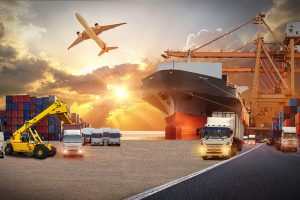The transportation sector is undergoing a revolution, driven by technological advancements and sustainability concerns. The conventional transportation system, which relies heavily on fossil fuels, is being transformed by innovations such as electric vehicles, autonomous vehicles, hyperloop systems, and hydrogen fuel cell vehicles. These technologies are changing the way we travel and transport goods, and their impact is being felt across various sectors and industries. This essay will explore the transportation revolution, its impact on the environment, economy, and society, and the challenges that need to be addressed for sustainable development.
Environmental Impact
One of the primary drivers of the transportation revolution is the need to reduce greenhouse gas emissions and mitigate climate change. The transportation sector is responsible for a significant portion of global emissions, with the burning of fossil fuels being a major contributor. Electric vehicles (EVs) and hydrogen fuel cell vehicles offer a cleaner alternative to traditional fossil fuel-based vehicles, producing zero tailpipe emissions and reducing greenhouse gas emissions. According to the International Energy Agency (IEA), the widespread adoption of EVs could reduce greenhouse gas emissions by up to 80%.
Autonomous vehicles (AVs) also have the potential to reduce greenhouse gas emissions by optimizing traffic flow and reducing fuel consumption. AVs can reduce traffic congestion, which is a major contributor to greenhouse gas emissions. By smoothing the flow of traffic, AVs can reduce fuel consumption and lower emissions. Additionally, the use of autonomous vehicles for ride-sharing and carpooling can further reduce the number of vehicles on the road, leading to lower emissions.
Economic Impact
The transportation revolution is not only beneficial for the environment, but it also has the potential to transform the economy. The adoption of electric vehicles, autonomous vehicles, and hyperloop systems can create new jobs and stimulate economic growth. According to a report by the International Energy Agency (IEA), the electric vehicle industry could support up to 10 million jobs worldwide by 2030. The report also states that the widespread adoption of electric vehicles could generate up to $1.7 trillion in economic benefits by 2050.
The adoption of autonomous vehicles can also create new jobs, particularly in the areas of software development, data analysis, and maintenance. According to a report by the World Economic Forum, the autonomous vehicle industry could create up to 100,000 new jobs in the United States by 2025. Additionally, the use of autonomous vehicles for ride-sharing and carpooling can reduce the number of vehicles on the road, leading to lower operating costs and increased productivity.
Societal Impact
The transportation revolution has the potential to transform society in various ways, particularly in terms of mobility and accessibility. Electric vehicles, autonomous vehicles, and hyperloop systems can provide greater mobility for the elderly and disabled, improving their quality of life and independence. According to a report by the National Highway Traffic Safety Administration (NHTSA), autonomous vehicles could reduce traffic fatalities by up to 90%, saving lives and improving road safety.
The adoption of hyperloop systems can also transform long-distance travel, reducing journey times and improving connectivity between cities and regions. Hyperloop systems can travel at speeds of up to 700 mph, making them faster than airplanes and trains. This can foster economic growth and development by connecting cities and regions, making goods and services more accessible, and creating new opportunities for businesses and individuals.
Challenges
Despite the numerous benefits of the transportation revolution, there are several challenges that need to be addressed for sustainable development. One of the primary challenges is infrastructure. The adoption of electric vehicles, autonomous vehicles, and hyperloop systems requires significant investment in infrastructure, including charging stations, dedicated lanes, and hyperloop tubes. Governments and industries must work together to invest in research and development, and create policies that encourage the adoption of sustainable transportation technologies.
Another challenge is regulation. The transportation sector is heavily regulated, and new technologies require new regulations to ensure safety and security. Governments must create regulations that encourage innovation while ensuring safety and security. This requires a balance between innovation and regulation, which can be challenging.
Public acceptance is another challenge. The adoption of new technologies requires public acceptance, and there may be resistance to change. Education and awareness are key to addressing this challenge, and governments and industries must work together to educate the public about the benefits of sustainable transportation technologies.
The transportation revolution is changing our world in numerous ways, offering a cleaner, safer, and more efficient way to move people and goods. The adoption of electric vehicles, autonomous vehicles, hyperloop systems, and hydrogen fuel cell vehicles has the potential to reduce greenhouse gas emissions, improve air quality, and enhance energy security. The transportation revolution also has the potential to transform the economy and society, creating new jobs, stimulating economic growth, and improving mobility and accessibility.
However, there are challenges that need to be addressed for sustainable development. Infrastructure, regulation, and public acceptance are key challenges that must be addressed for the transportation revolution to succeed. Governments and industries must work together to invest in research and development, create policies that encourage the adoption of sustainable transportation technologies, and educate the public about the benefits of these technologies.
The transportation revolution is a significant step towards a more sustainable future, and it has the potential to transform our world in numerous ways. With the right support and investment, the transportation revolution can create a cleaner, safer, and more efficient transportation system, benefiting the environment, economy, and society.
















Add Comment